Major Cities in Poland
Explore Poland's major cities and find the perfect place for your new life. Each city offers unique opportunities, culture, and lifestyle. Compare costs, job markets, and quality of life to make an informed decision.
Finding Your Perfect Polish City
Poland's cities offer diverse opportunities for expats, each with its unique character and advantages. From the bustling metropolis of Warsaw to the historic charm of Krakow, from the tech hub of Wroclaw to the coastal beauty of Gdansk, you'll find a city that matches your lifestyle and career goals.
Our comprehensive city guides help you understand the cost of living, job markets, housing options, and quality of life in each location. Use this information to make an informed decision about where to start your Polish adventure.
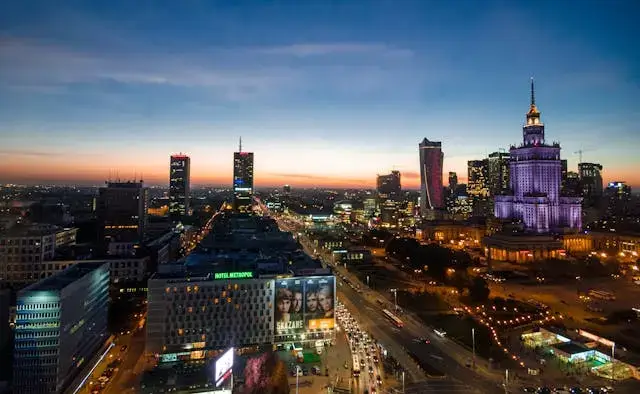
Warsaw by night
Polish Cities for Expats

Warsaw
Masovian Voivodeship
Poland's capital and largest city, Warsaw is a modern metropolis with a rich history. It's the country's economic and cultural center, offering excellent career opportunities and a high standard of living.
Key Advantages:
- Excellent job opportunities in various sectors
- Most developed infrastructure in Poland
- Rich cultural life and entertainment options
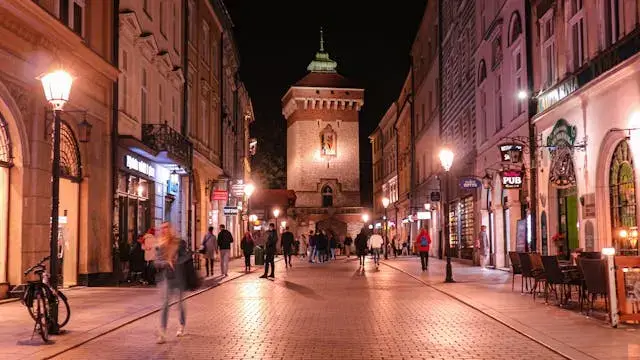
Krakow
Lesser Poland
Poland's cultural capital and former royal city, known for its medieval architecture and vibrant student life.
Key Advantages:
- UNESCO World Heritage Old Town
- Strong tech and business services sector
- Excellent university city atmosphere
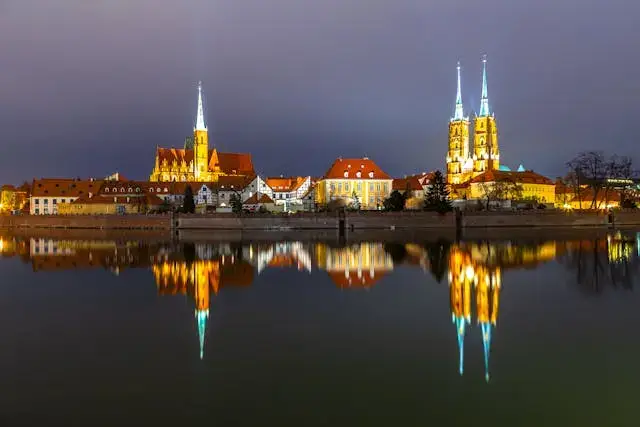
Wroclaw
Lower Silesia
A rapidly growing business center known for its beautiful market square and young, dynamic population.
Key Advantages:
- Lower cost of living
- Growing business and tech sector
- Beautiful historic architecture
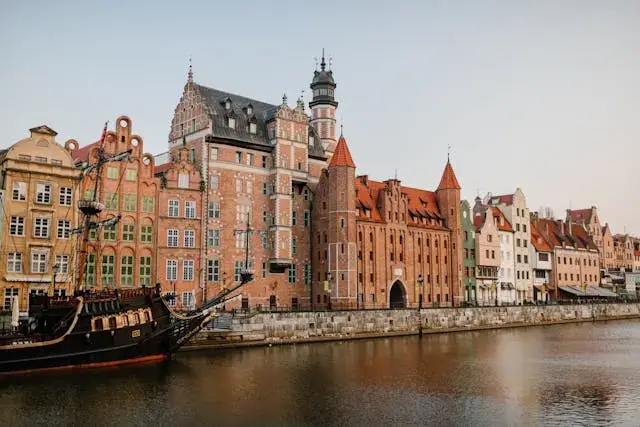
Gdansk
Pomeranian
Historic port city on the Baltic coast, known for its maritime heritage and beautiful architecture.
Key Advantages:
- Beautiful coastal location
- Rich maritime history and architecture
- Part of larger Tri-City area
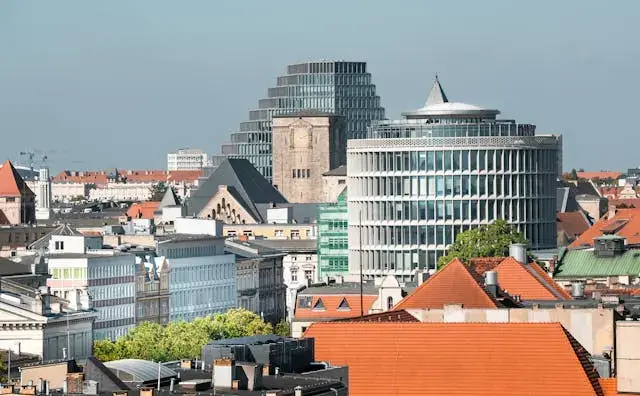
Poznan
Greater Poland
Western Poland's business hub with strong German connections and excellent work-life balance.
Key Advantages:
- Excellent work-life balance
- Close proximity to Germany (2 hours)
- Lower cost of living
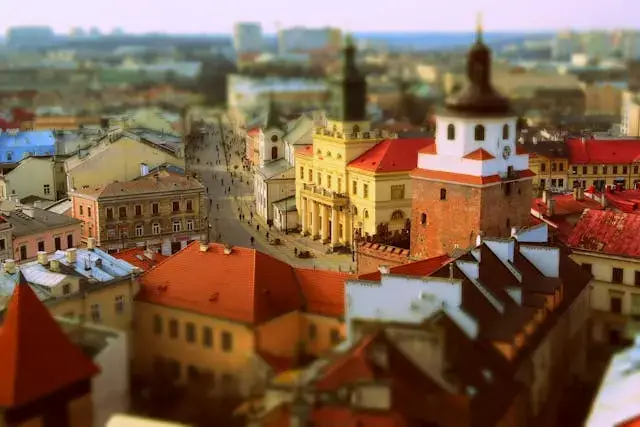
Lublin
Lublin
Eastern Poland's academic and cultural center, known for its prestigious universities and historic old town.
Key Advantages:
- Very low cost of living
- Prestigious universities and academic atmosphere
- Rich cultural heritage and history
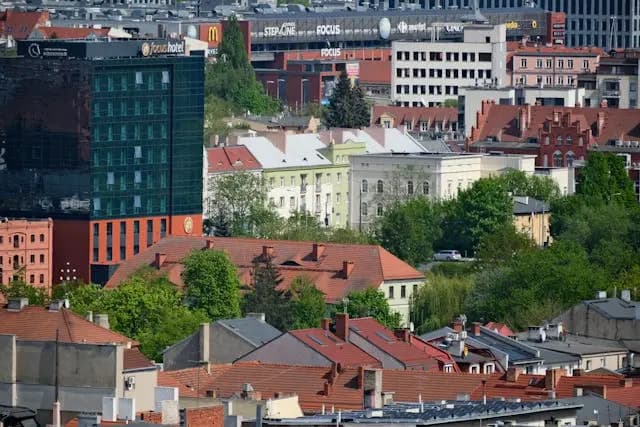
Katowice
Silesia
Capital of the Silesian metropolitan area, a major industrial and cultural center with modern business districts.
Key Advantages:
- Part of large metropolitan area
- Strong industrial and mining heritage
- Growing business services sector
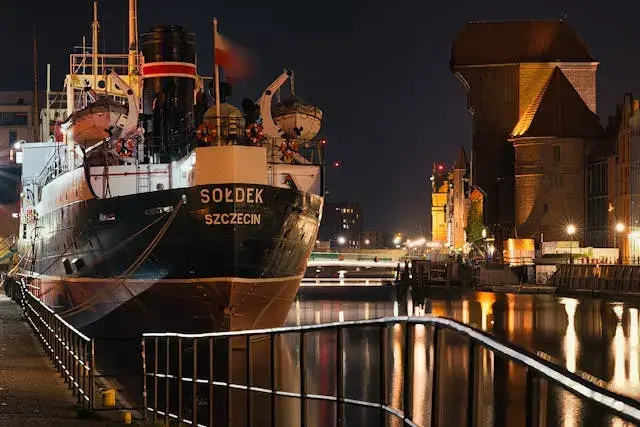
Szczecin
West Pomeranian
Major port city near the German border, offering maritime opportunities and strong German business connections.
Key Advantages:
- Close proximity to Germany (1.5 hours to Berlin)
- Major seaport with maritime opportunities
- Lower cost of living
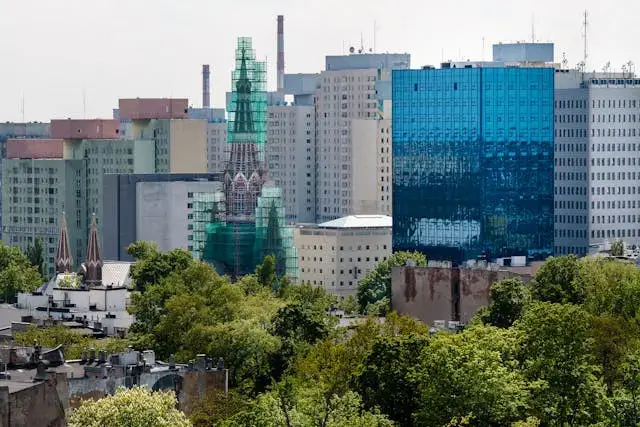
Lodz
Lodz
Poland's third-largest city, known for its film industry, textile heritage, and central location.
Key Advantages:
- Very affordable cost of living
- Rich cultural and artistic scene
- Famous Film School and creative industries
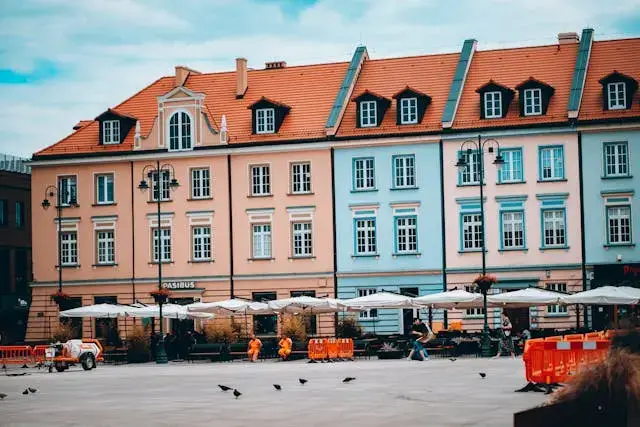
Bydgoszcz
Kuyavian-Pomeranian
Industrial center in north-central Poland, known for music, manufacturing, and cultural events.
Key Advantages:
- Very affordable cost of living
- Rich musical and cultural heritage
- Growing industrial and logistics sector
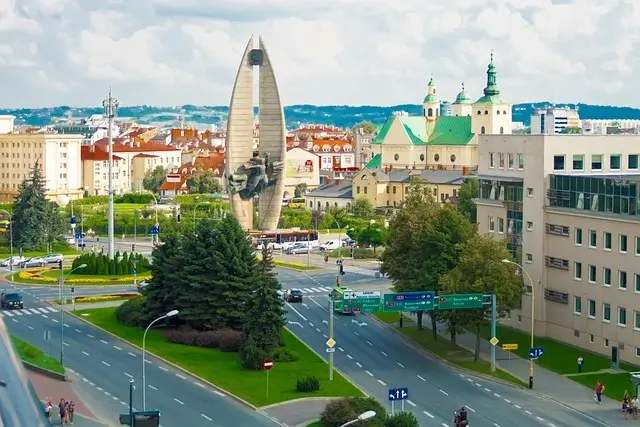
Rzeszow
Podkarpackie Voivodeship
Rzeszow is a dynamic city in southeastern Poland, known for its aviation industry and growing tech sector. The city combines modern development with traditional Polish charm, offering a high quality of life at affordable costs.
Key Advantages:
- Strong aviation and aerospace industry
- Growing tech and IT sector
- Very affordable cost of living
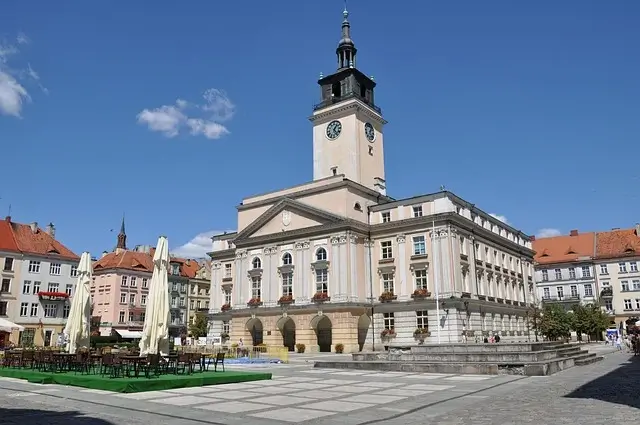
Kalisz
Greater Poland Voivodeship
Kalisz is one of Poland's oldest cities with over 1,800 years of history. Located in central-western Poland, it offers a perfect blend of historical charm and modern amenities at very affordable prices.
Key Advantages:
- Very affordable cost of living
- Rich historical heritage and architecture
- Strategic location between major cities
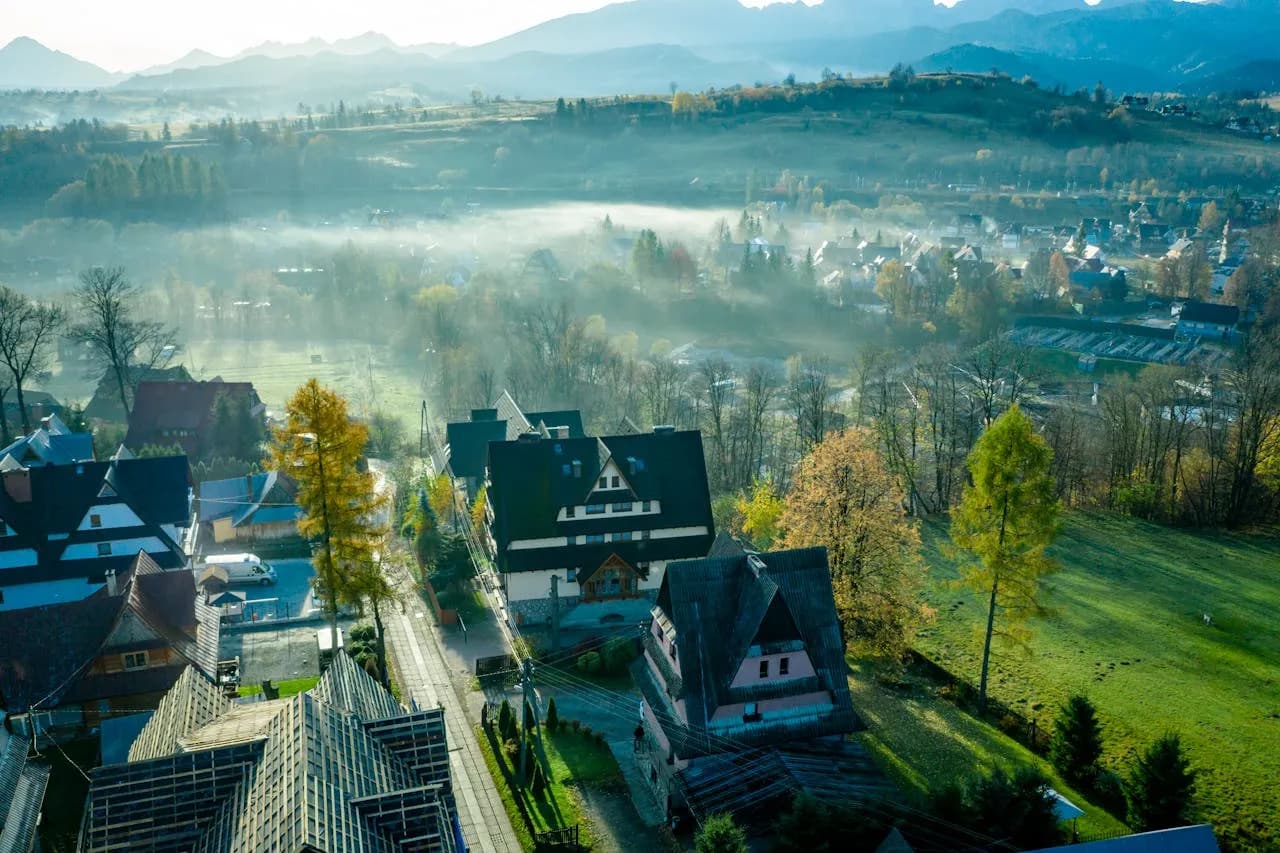
Zakopane
Lesser Poland Voivodeship
Poland's premier mountain resort town and most popular tourist destination, famous for its stunning Tatra Mountains scenery and year-round tourism.
Key Advantages:
- Most visited tourist destination in Poland
- Stunning Tatra Mountain scenery year-round
- World-class skiing and winter sports facilities
Frequently Asked Questions About Living in Polish Cities
Which Polish city is best for expats?▼
Warsaw and Krakow are the most popular choices for expats due to their international atmosphere, job opportunities, and extensive English-speaking communities. Warsaw offers the most career opportunities in finance and business, while Krakow is known for its tech scene and cultural attractions. However, cities like Wroclaw and Gdansk are increasingly attractive alternatives with lower living costs and high quality of life.
What's the most affordable major city in Poland?▼
Among major cities, Lodz and Lublin typically offer the lowest cost of living, especially for housing. Katowice and Szczecin also provide good value for money. However, these cities may have fewer job opportunities compared to Warsaw or Krakow. For the best balance of affordability and opportunities, consider Wroclaw or Poznan, which offer competitive costs with strong job markets.
Which cities have the best job markets for foreigners?▼
Warsaw leads in job opportunities, especially in finance, consulting, and corporate sectors. Krakow and Wroclaw are major IT and business services hubs with many international companies. Gdansk is strong in logistics, maritime industries, and emerging tech. Poznan has a growing automotive and logistics sector. Each city has its specializations, so your best choice depends on your industry and skills.
Do I need to speak Polish to live in major Polish cities?▼
In major cities like Warsaw, Krakow, and Wroclaw, you can manage with English in many situations, especially in international companies, restaurants, and services. However, learning Polish will significantly improve your quality of life and job prospects. Government offices, healthcare, and local services often require Polish. Most expats start with basic Polish and improve over time while living there.
How much money do I need to live comfortably in Poland?▼
A comfortable lifestyle in major cities requires 6,000-10,000 PLN monthly in Warsaw or Krakow, and 4,000-7,000 PLN in smaller cities like Poznan or Wroclaw. This includes rent, food, transportation, and entertainment. Entry-level professionals typically earn 4,000-8,000 PLN net, while experienced professionals in IT, finance, or management can earn 8,000-15,000+ PLN monthly.
Which city has the best public transportation?▼
Warsaw has the most comprehensive public transport system with metro, buses, and trams covering the entire city. Krakow has excellent tram and bus networks but no metro. Wroclaw and Poznan have good tram and bus systems. Gdansk offers buses, trams, and regional trains. All major cities have integrated ticket systems and mobile apps for easy navigation.
What's the weather like in different Polish cities?▼
Poland has a temperate climate with four distinct seasons. Coastal cities like Gdansk have milder winters and cooler summers due to Baltic Sea influence. Southern cities like Krakow can be slightly warmer in summer and have more snow in winter due to mountain proximity. Warsaw experiences typical continental climate. All cities have cold winters (-5 to 5°C) and warm summers (20-25°C).
How easy is it to find housing as a foreigner?▼
Finding housing as a foreigner can be challenging but is definitely possible. Major cities have competitive rental markets. You'll typically need proof of income, deposit (2-3 months rent), and sometimes a guarantor. Many landlords prefer tenants with stable employment. Consider starting with short-term rentals or expat-friendly agencies. Facebook groups and websites like OLX, Otodom, and Gratka are popular for apartment hunting.
Which cities have the largest expat communities?▼
Warsaw has the largest and most diverse expat community, with strong networks from various countries. Krakow has a significant expat population, especially in tech and business services. Wroclaw has a growing international community due to its business centers. All these cities have active expat Facebook groups, international meetups, and English-speaking services. Smaller cities have smaller but often tight-knit expat communities.
What documents do I need to move to a Polish city?▼
EU citizens need only a valid ID or passport and can register their residence after arrival. Non-EU citizens need a visa or residence permit before arrival. For long-term stays, you'll need to register your address (meldunek), get a PESEL number (tax ID), and potentially a residence card. For working, you'll need appropriate work permits unless you're from an EU country. Each city has foreigner assistance centers to help with bureaucracy.
Ready to Start Your Polish Adventure?
Explore our comprehensive guides on practical aspects of moving to Poland.